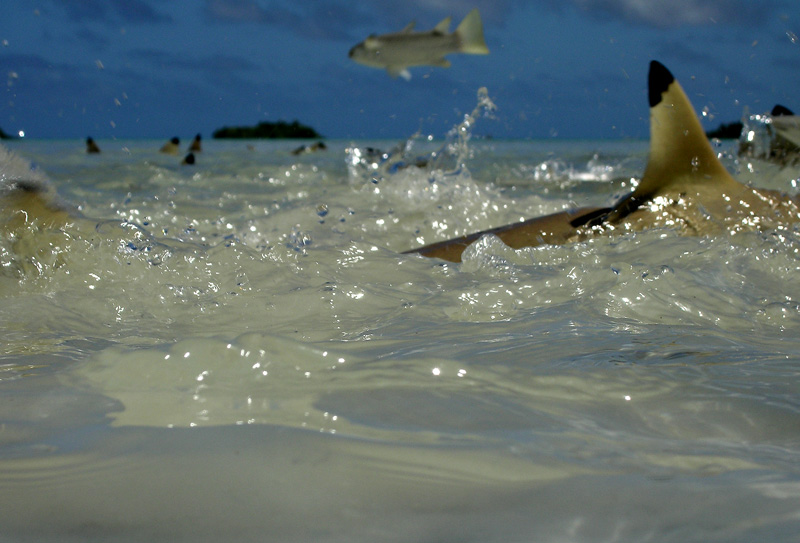Science News
Inspired to Study Sharks
August 12, 2014
by Molly Michelson

Paul Clerkin was raised on Shark Week. The young scientist was glued to the screen for one week every year at his home in Sacramento. There was no doubt what he would do when he grew up: “My parents knew I would become a marine biologist and study sharks.”
His parents were right. At 29, Clerkin travels all over the world, studying and talking about sharks. He’s a masters student at the Moss Landing Marine Laboratories, studying under Academy Research Associate (and director of the Pacific Shark Research Center) Dave Ebert. Ebert was conducting a project three years ago when Clerkin applied for the program (“it was the only place I applied to”) on shark diversity in the southern Indian Ocean. So since 2011, that’s what Clerkin has studied.
In his second semester at Moss Landing, Clerkin knew he would be heading out to sea to look for sharks, so in his first semester he developed "keys" used like a flow chart to identify the shark species. He figures he prepared about 117 of them for his journey. He printed them out and laminated them, but when he was out in the Indian Ocean, he discovered that he didn’t need them! Actually taking the time to create the keys was the best learning process Clerkin could ask for. “Making the keys was how I learned the sharks in the area,” he says.
He headed out to sea in February 2012, leaving on a fishing boat from Mauritius. Sharks are trapped as bycatch, and Paul sampled all that came onboard—about 25 different species, at least eight of which are new to science. We covered that trip in Science Today and the new species also caught the eye of National Geographic. Clerkin is now busy describing these new species for future publication.
He returned to the southern Indian Ocean this spring and came home to California two weeks ago—just in time for Shark Week! He spent 60 days out at sea with a commercial fishing boat again, and then spent time teaching international scientists how to identify sharks at the United Nations FAO (Food and Agriculture Organization) workshop on the deep sea.
The trip allowed Clerkin to indulge in his two loves—finding new sharks and witnessing their diversity, plus sharing that these discoveries with others. “Many people only know about great whites, but sharks are so diverse. Some are small, with small teeth, some are huge. I love it when I talk to kids and they tell me their favorite shark is a cookiecutter shark. I like that they know some of the more obscure ones,” he says.
And for this Shark Week fan, life is a dream come true. A cameraman joined him on his expedition this spring and Clerkin is the subject of Discovery’s Alien Sharks: Return to the Abyss, airing tonight. Maybe his show will inspire future shark researchers in the same way that Shark Week inspired him.